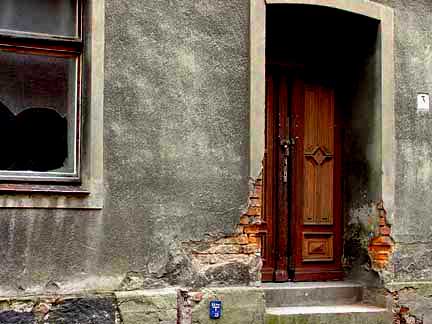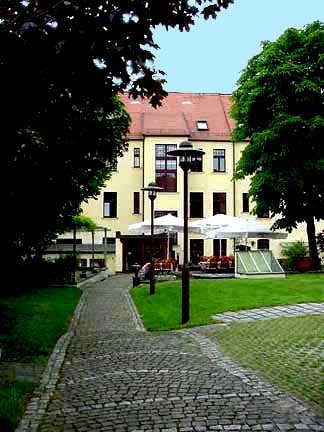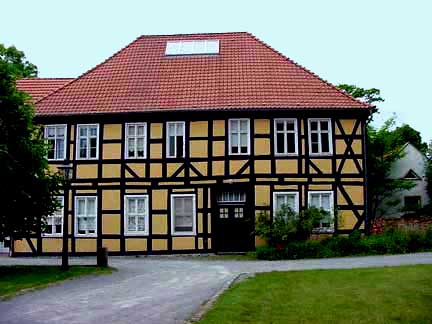An American tourist visits Gardelegen Except for an elderly couple, who had gotten on the train at the previous stop in the village of Skolpe, about 10 kilometers from the town, I was the only passenger to get off at Gardelegen. There was one taxi cab waiting. The driver did not speak English. As we drove to the Hotel Reutterhaus, the driver immediately launched into a diatribe about the plight of the town, which he claimed is plagued with unemployment, so that the residents are leaving and newcomers are moving in. The new residents, according to my taxi driver, are mostly immigrants from other countries. I immediately noticed the diversity of the population, as there were immigrants from Africa hanging out at the train station, and there was an Asian restaurant across from my hotel. Without any prompting from me, my taxi driver began to tell me the tragic story of the prisoners who were burned to death in the barn over half a century ago. Apparently, nothing else of importance, which would attract an American visitor, has happened in Gardelegen since that horrible tragedy on April 13, 1945, which seems to have cast an evil spell over the town. The route from the train station to my hotel was along Bahnhofstrasse, the name of which suddenly changed to Ernst-Thälmann-Strasse after a few blocks. During the Nazi regime, every town had a street named in honor of Adolf Hitler, and this street was previously named Adolf-Hitler-Strasse. Another street in Gardelegen, Stendaler-Strasse, becomes Rudolf-Breitscheid-Strasse just before it enters the center of the old town. Thälmann was the leader of the Communist party in Germany in 1932, and Breitscheid was the second highest member of the party. Thälmann ran against Adolf Hitler, who was the leader of the NSDAP party, in the German presidential election held in April 1932. After the Reichstag fire in Berlin on February 27, 1933, both Thälmann and Breitscheid were arrested because the Nazis blamed the fire on the Communists. Both were prisoners in the Nazi concentration camp system and neither of them survived. A map of Gardelegen reads like a Communist honor roll. Half of the streets are named after famous Communist leaders, starting with Karl Marx. One of the streets is named Im-Rosa-Winkel-Strasse (Pink Triangle Street). This is a reference to the homosexuals in Nazi Germany who were arrested for soliciting on the street or committing sexual acts in public in violation of Paragraph 175 of the civil code. In the concentration camps, they had to wear a pink triangle, while political prisoners, such as the Communists, were forced to wear a red triangle. Gardelegen's most famous citizen was Otto Reutter. The Hotel Reutterhaus on Sandstrasse, where I stayed, was named after him and there were photographs and drawings of him in the dining room. He is buried in the town cemetery. The Hotel Reutterhaus is a three-star comfort hotel and seems to be one of the main gathering places in Gardelegen. Behind the hotel is a very pleasant patio with restaurant tables. A separate entrance to the patio is on the street parallel to Sandstrasse.   Gardelegen has several preserved 17th Century houses, like the one in the photograph above, which was located down the street from my hotel, and in front of the church which is shown on the next page. ContinuePreviousHomeThis page was last updated on March 29, 2007
|